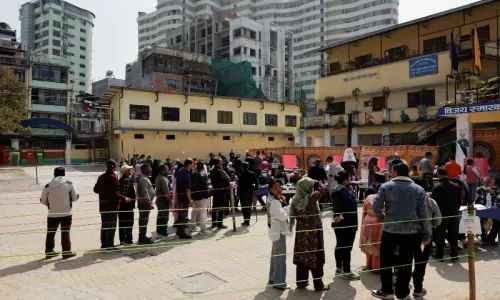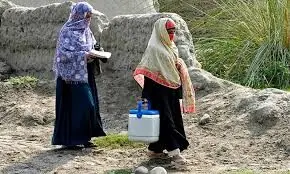RAWALPINDI: The death of two patients who were suffering from Crimean-CongoHaemorrhagic Fever(CCHF) at Benazir Bhutto Hospital (BBH) set alarmbellsringing in Attock district and forced the local administration to take preventive measures to avoid the outbreak of the fever.
A 51-year-old patient from Hazro was brought to BBH on May 1 with high fever and bleeding from mouth. He breathed his last at the hospital. The second patient was a 50-year-old woman, who arrived from Jand on May 17 but did not survive either. The National Institute of Health (NIH) later confirmed that both patients were suffering from Congo virus.
Another 19-year-old patient arrived from Fatehjang on May 23 with symptoms of Congo virus. However, his report turned out negative.
BBH Medical Superintendent Dr Tahir Rizvi told Dawn that the blood samples of the doctors, nurses and attendants had been sent to the NIH as a precautionary measure.He said the three patients were already in quarantine and had been given medication as per standard operating procedures (SOPs) of the health department. He said as a precaution, the hospital administration put the staff on high alert and started fumigating the wards.He said complete fumigation would be carried out in two to three days.
The Congo feverbelongs to Zoonotic diseases that are spread to humans from animals. In Pakistan the first human outbreak was reported in Rawalpindi back in 1976 and among the casualties was Dr Mateen who died while treating a patient of CCFH at Central General Hospital (now Benazir Bhutto Hospital).
Following the emergence of these two cases, the district administration imposed a ban on bringing animals from Attock and establish checkposts at all entry and exist points of the district.
These checkposts were set up in Missa Kaswal, Mandra and Chakri.
Deputy Commissioner Dr Hassan Waqar Cheema asked the livestock department to deploy staff round the clock to check all animals entering and leaving the district.
He said the provincial government had provided all necessary medicines and equipment to the government hospitals to deal with Congofevercases before and after Eidul Azha. He urged people to avoid close contact with animals affected by ticks.
He further directed the hospitals and basic health units to improve the sanitation system in their premises and clinical waste should be dumped as per SOPs issued by the government.
“Pathological laboratories should also take necessary measures in this regard,” he said, adding that the local administrations should take steps to ensure cleanliness in cattle markets and streets during Eidul Azha to avoid the spread of the disease. He said the livestock department should deploy veterinary doctors to check the animals before they are brought to the cattle markets and open places.
Published in Dawn, May 26th, 2024






























